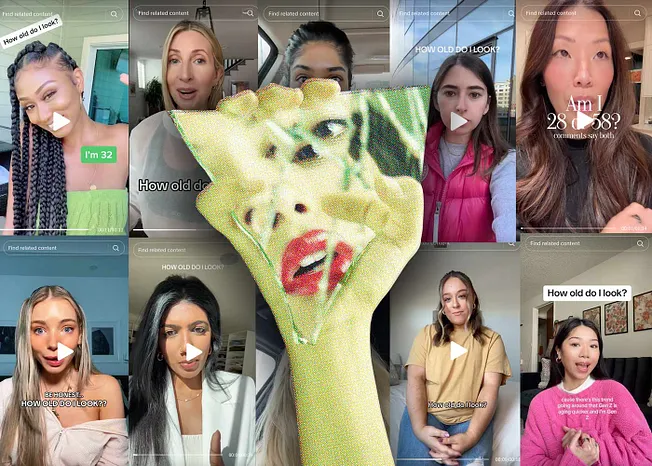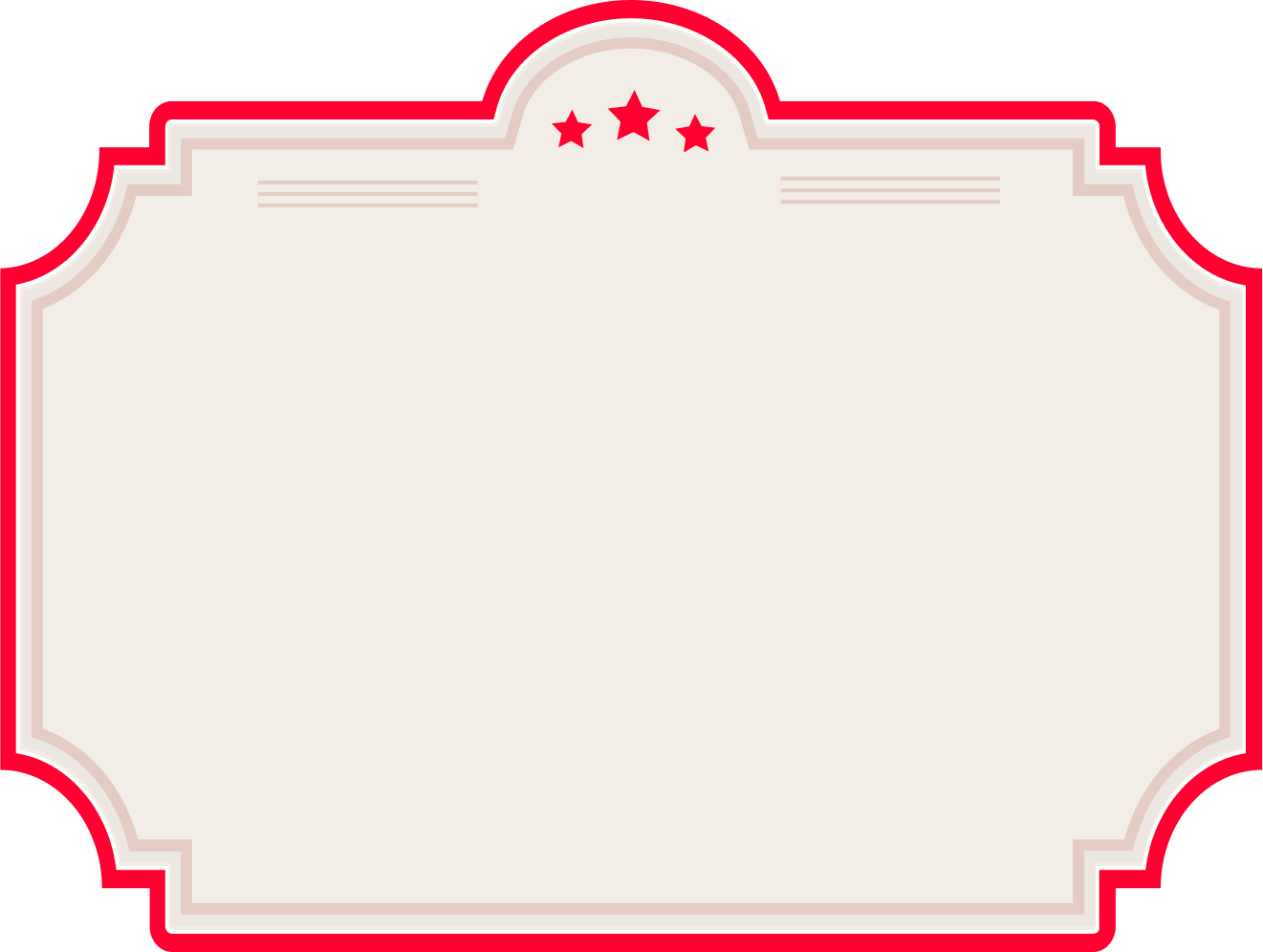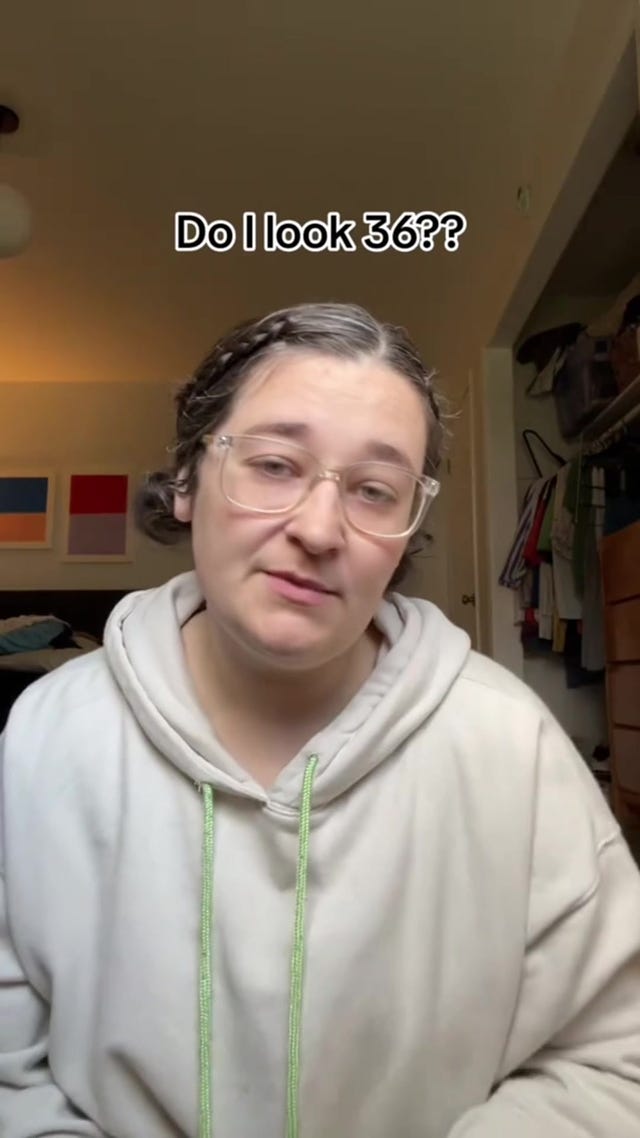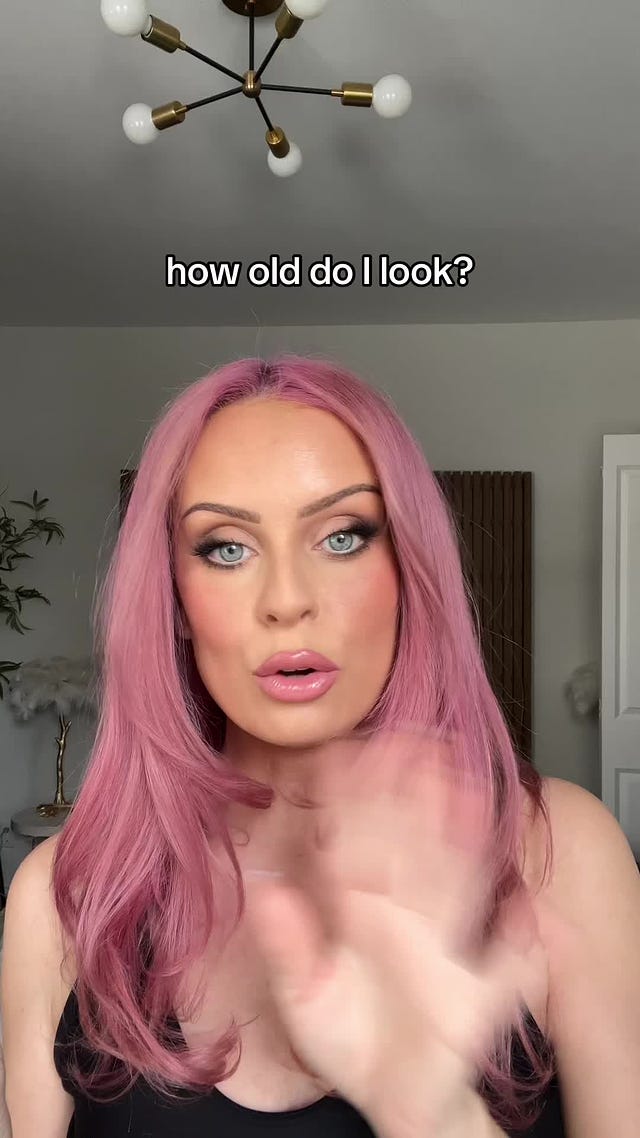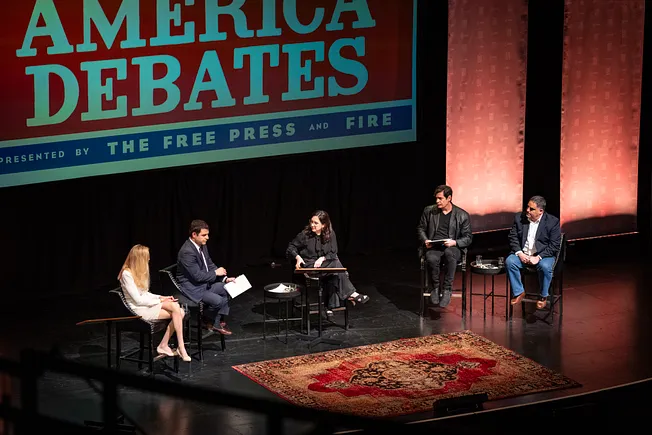This is a tale of three TikToks—a tragedy for the digital age. It begins with a woman wearing a raspberry-colored sweater, gazing shyly into her front-facing camera. She says, “I’m having a pretty good day today. So I thought, let’s ruin it by guessing my age.” There’s a pause, some nervous laughter. “How old do you think I am?”
In the next video, she’s still smiling, but shaken. “This has to be a joke, right?” she says. “There’s no way I look like I’m around fifty.”
In the video after that, her smile is gone, and her voice is quivering like she’s an inch away from crying. She’s gotten so many hateful comments, she says. She’s been up all night, thinking about it. And she’ll be getting a makeover and Botox, among other things, since apparently she looks 20 years older than her actual age.
The first comment on this last video reads, “Don’t waste all your money. A paper bag is much cheaper.”
Welcome to the TikTok craze known as the “How Old Do I Look” challenge, in which users film themselves asking the platform’s 1.92 billion members to guess how old they are. It’s the content mill equivalent of a dish that makes its own gravy; make one video like this, and the resulting comments are sure to give you material for several more, and that’s not even counting the requisite follow-up where you reveal your actual age. Thirty-eight, in the case of the woman in the raspberry sweater.
If this sounds masochistic to you, that’s because it is. Nothing good comes from inviting millions of internet strangers to rate your appearance, but it’s the predictable outcome of this exercise. It might even be the intended one, as evidenced by the “let’s ruin my day” framing that’s a consistent feature of these videos. On the one hand, nobody wants to be called a hag on the internet; on the other, how are you going to make a vulnerable, tearful viral video if nobody calls you a hag on the internet? Watching these videos, I couldn’t help thinking of that Samuel L. Jackson line from Pulp Fiction: “If my answers frighten you, Vincent, then you should cease asking scary questions.”
As of this writing, the “How Old Do I Look” trend seems to be on its last legs; those first earnest videos have been almost fully replaced by ironic parodies, the final stage in the life cycle of any TikTok fad. But beneath its surface lie more durable insights about how the internet is changing our notions of what it means to get older—and how millennials, the main progenitors of the “How Old Do I Look” challenge, are changing the face of middle age.
 Tiktok failed to load.
Tiktok failed to load.Enable 3rd party cookies or use another browser
In one sense, these videos reflect the strange unreality of trying to guess anyone’s age in a world of filters, injectables, “tweakments,” and cosmeceuticals.
In 2024, the uncanny valley is populated not just by AI characters who seem a little too real, but also by real people who seem a little too much like AI, whose eerie Instagrammified faces make them look like they’ve wandered into our world from a Roger Rabbit–style universe where people coexist alongside cartoon characters.
Indeed, it sometimes feels as if we’re approaching a singularity at which age becomes not a number but a vibe, and youth is no longer an ephemeral condition but an aesthetic. “Young” and “hot” have already become basically synonymous with each other, as evidenced by the particular cruelty of the “How Old Do I Look” challenge toward non-beautiful women, who are invariably pegged as fifty-plus no matter how unwrinkled and supple their skin.
The wildly contradictory criticisms leveled by commenters make it clear that whatever is being enforced here, it’s not the appearance of youth. Being overweight is aging, but so is being too thin, evidence of “Ozempic face.” Hooded eyes are “saggy,” hence old, but arched eyebrows look “Botoxed,” hence also old. Ultimately, the only way to win the “How Old Do I Look” challenge is to be an over-35 millennial with the ethereal teenage beauty of a Glossier model. The point is to look not just young and beautiful, but effortlessly so. If you are young but not pretty, you lose. If you are young but trying too hard to look pretty, you also lose.
 Tiktok failed to load.
Tiktok failed to load.Enable 3rd party cookies or use another browser
As such, you’d be forgiven for imagining that this TikTok trend was invented specifically by Gen Zs to torture the aging millennials with whom they have a peculiarly antagonistic relationship. But the most avid participants are people in their thirties and up. It makes sense, when you remember that we’ve been seeking attention and validation on the internet since before Gen Z was born. Younger people may be the face of TikTok culture, but millennials are its architects. “How Old Do I Look” could only have been invented by the generation that first cut its teeth on Hot or Not dot com.
And even in middle age, the narrative about millennials is what it’s always been: that we are trapped in permanent adolescence; that we are hopelessly late to achieve grown-up benchmarks like homeownership, marriage, and children, if we get there at all. That we’ve killed the entire concept of the midlife crisis by virtue of not being adult enough to have one. And yet, the online culture we’ve built betrays the terrifying truth that we’re aging, and we know it.
That is what midlife panic has always, actually, been about: not the fantasy of being young again, but the reality of being too old to start over, which perhaps carries a special sort of horror for the generation that invented not just the personal brand, but the personal rebrand. Or maybe this isn’t a midlife crisis so much as an identity crisis, spurred by our displacement as society’s misunderstood youth. For 20 years millennials have enjoyed the paradoxical comfort of being society’s scapegoats, the kids who never grew up. Take that away, and who are we?
Whether we like it or not, we’re executive-level managers, PTA members, caretakers for elderly parents who have gone from being the butt of “okay Boomer” jokes to being just straight-up, break-your-hip old. We are, in short, entrenched in middle age, no matter how powerless and adolescent we may feel, or, yes, how hot we still look.
Kat Rosenfield is a columnist at UnHerd and co-host of the Feminine Chaos podcast. Follow her on X @katrosenfield.
Subscribe to The Free Press for more columns, investigations, debates, delivered to your inbox every morning:


